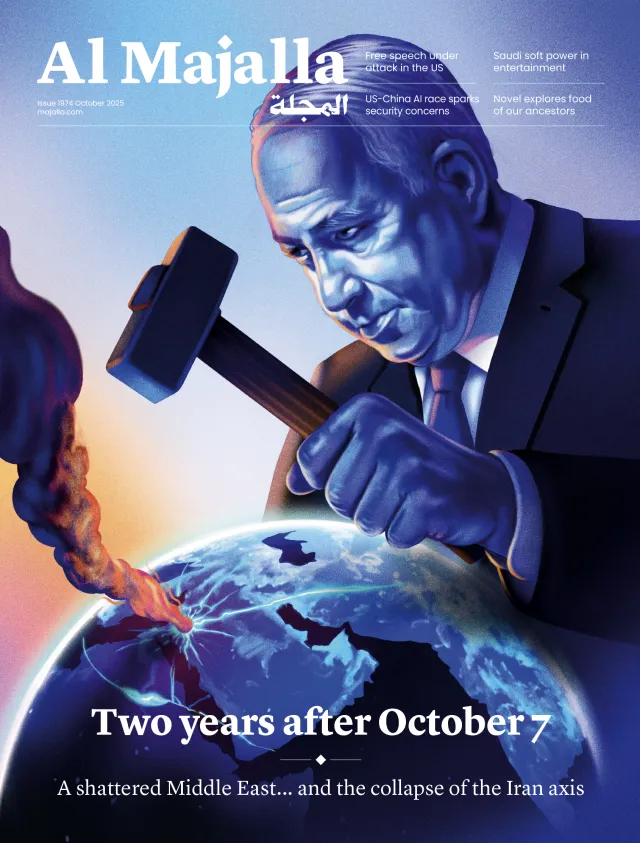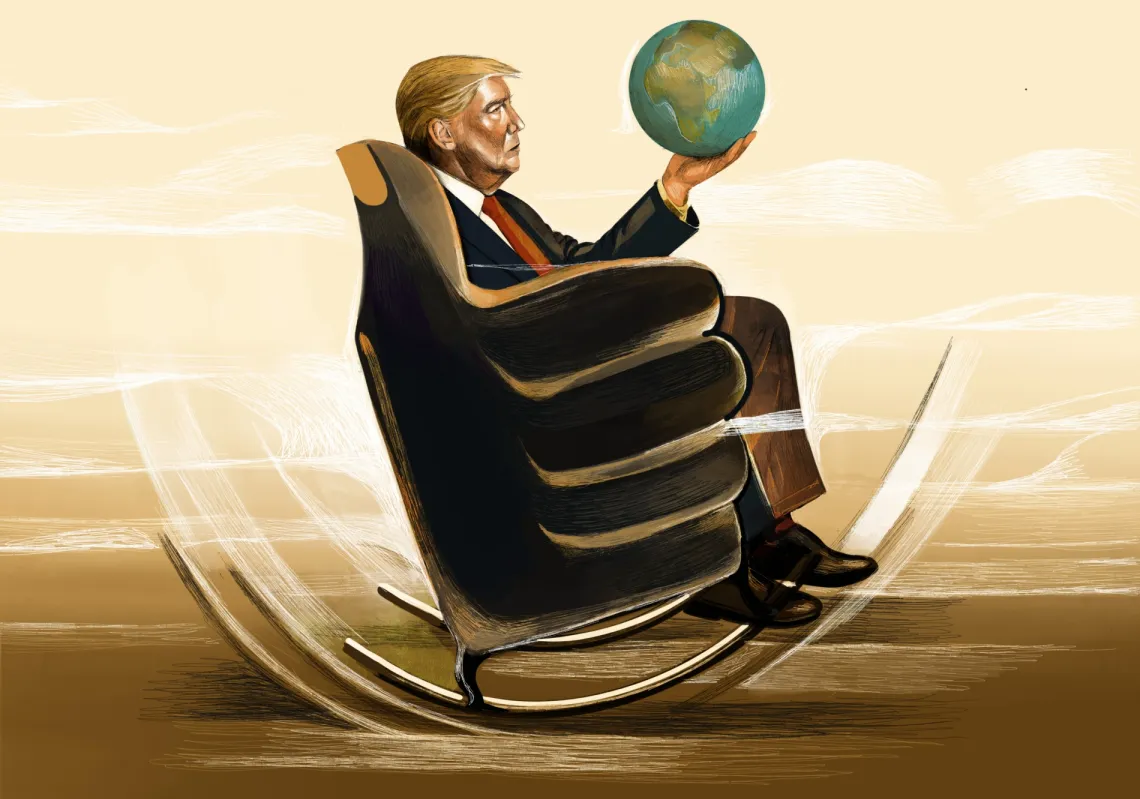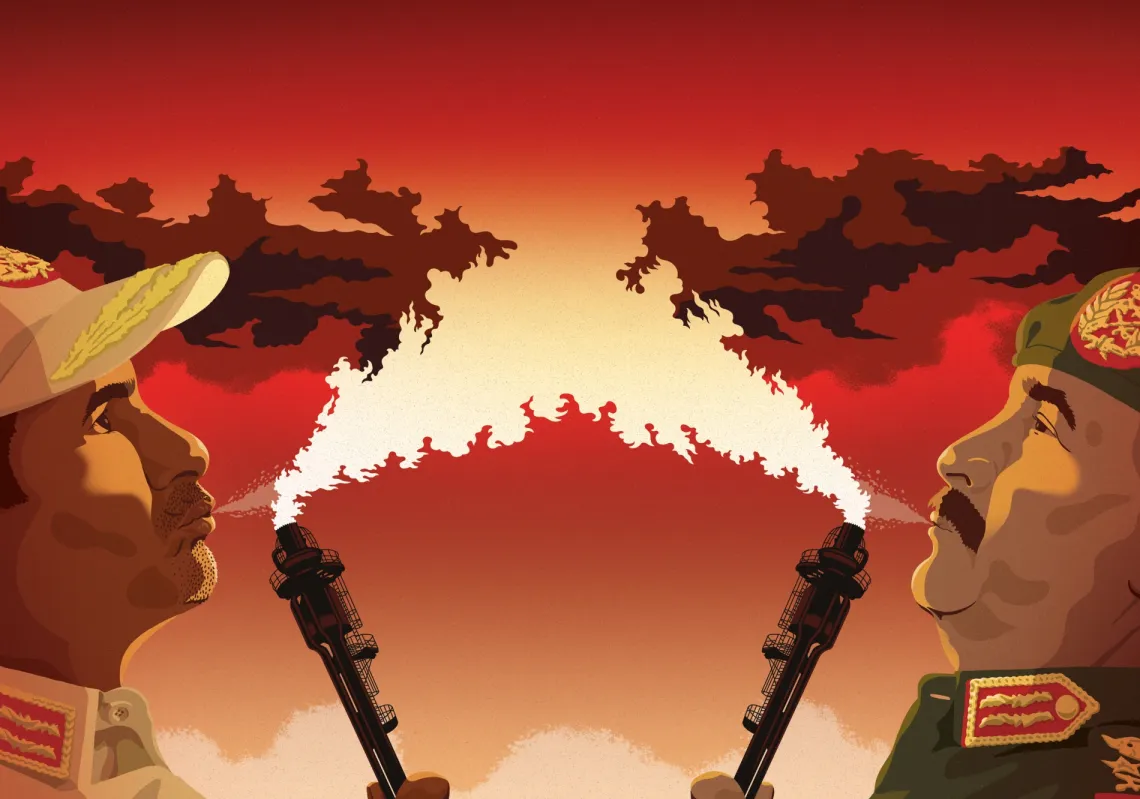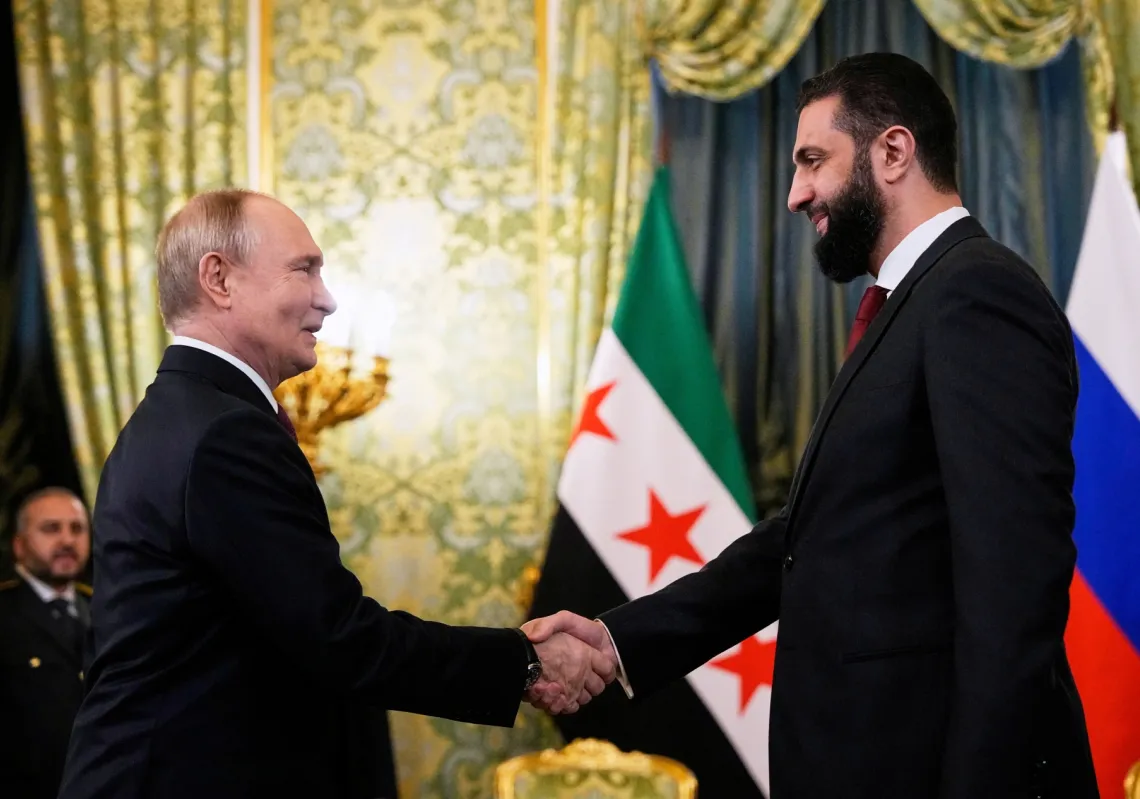William Cohen is the former Defense Secretary of the Clinton Administration during Clinton’s second term, from 1997 to 2001. He was appointed Defense Secretary after retiring from Senate where he represented the Republican party. As Secretary of Defense, he played a central role in the United Sates operations in Desert Fox in Iraq and NATO operation Allied Force in Kosovo. His second year in office witnessed the al-Qaeda bombings of the United States embassies of Kenya and Tanzania. Cohen spoke with The Majalla about several strategic and security issues in the Middle East, including Iran’s nuclear plans and the progress of the international presence in Afghanistan.
The Majalla: Even if Iran’s nuclear programme is for peaceful purposes, considering that they have the know-how and the technology to achieve highly enriched uranium, do you think Iran can ever be trusted?
Given Iran’s past conduct and its highly illogical fervour, I think that absolutely intrusive inspections and over-site scrutiny would be an absolute minimum. That would have to be the system if they were to go forward with their nuclear power programme.
I think that there will always be doubts about it, in terms of what their designs are. Everyone has stated, as have we, that every country is entitled to have a certain nuclear power as long as it complies fully and in line with all of the international safeguards. That would apply to Iran as well. But I think that the burden of proof would be quite substantial in terms of what would be required of Iran by virtue of its past practices and by virtue of its expansionist objectives.
The Majalla: According to Ambassador Carl Ikenberry, there is progress in Afghanistan. Would you agree with this?
There is some progress from what has been taking place obviously, but don’t forget we had General McCrystal’s recommendations in his report that were furnished to the President. I didn’t see it, but it was reported in the press that unless we have a substantial infusion of forces, then the risk of failure is quite high. So we were on a slope, or failure, from a security point of view. Recently, that has been somewhat reversed, or at least flattened out. Now with the thirty thousand troops that will be going in, plus the seven and possibly eight thousand from the NATO European members, the hope is the scenario in Afghanistan will improve considerably. Again, it is still a moderate to high risk even with forty thousand new troops. That in conjunction with working with the Pakistani military in a more focused way to assist them to focus on the Taliban and not lean only on the assistance we provide to deal with them.
The Majalla: The main purpose of Obama’s new strategy is to break “the Taliban’s momentum”, as people now say. Once this happens, what do you think are the chances to negotiate?
Well, it depends. Some of the Taliban may have an interest in not being associated with the more radical elements, and possibly would lay down their arms and agree to at least conduct themselves in a fashion that would not pose a threat to the stability of the country. We’re exploring that, if that is possible. In any event, as General Petraeus said, there are some in the Taliban that must be kept close and not driven away; we’ll just have to wait.
The Majalla: There are evidences that the link between al Qaeda and the Taliban is not exactly a love story. Can the Afghan Taliban be convinced to cut with al Qaeda for good?
It depends on how much success we have on the ground, to the extent that they [the Taliban] see that there is now a new plan, a new commitment with a new focus that will have fairly dramatic consequences in terms of their security and survival. That may alter the Taliban’s opinions and cause even greater separation.
The Majalla: The Pakistan government does not seem that concerned with the US drones programme. What do you think are the positive aspects of the programme?
It is a delicate situation for Pakistan that obviously does not welcome any foreign troops operating inside its territory. However, to the extent that the US is able to operate the drones under their control, then they perceive that as something quite beneficial. It has been quite successful. But it has been a result of a partnership of cooperation other than the US simply getting in at will into Pakistani territory to carry out these attacks.
The Majalla: Somalia is becoming a similar case to Afghanistan of the 1990s, where the Shabaab, with strong ties with and inspired by al-Qaeda, gradually taking over the country. What can be done about this?
There is going to have to be an international solution here. The first thing that you have to have again is stability. That may necessitate installing a military component on an international level. Wherever you have poverty and despair you’re going to have an open market for al-Qaeda to come in and try to sell its terrorist ideology. Economic security and military security go hand in hand and this is something that should be a high a priority on the international agenda.
The Majalla: Do you think we live in a more dangerous world than that when you where Secretary of Defense in the Clinton administration?
The answer is yes. The world has become more dangerous in the sense that at one point during the Cold War, we were living on the hair trigger of a nuclear exchange between the former Soviet Union and the United States, and that certainly posed an existential threat to not only our country but to many others as well. Since that time what we have seen is the democratization of terror, namely with the way information is now made available. Tom Friedman was talking about the world being flat, well, a flat world means that information is now distributed globally and just as Bill Gates has access to technology, so does Bin Laden. As a result of that, we are now in a position where just a few people can bring about catastrophic harm. That becomes more difficult to contend with because you are not necessarily dealing with rational people; you are dealing with extremists who are prepared to blow themselves up. And if they have access to nuclear technology then it poses enormous threats to security throughout the world, so it’s a more dangerous world by virtue of information now being available to literally anyone.
Not that we can’t contend with it, we are certainly adding defensive measures, mainly intelligence through the sharing of information, but because we are democracies we remain open, we remain vulnerable. What we have to do is to try to improve regional and international cooperation to marginalize the extremist elements, reduce them down and control them as best we can, arrest them if we can, which is going to require good police work as opposed to military action. The gathering of information on individuals is central, as you saw in Pakistan most recently, with five Americans on their way to Pakistan to get training to start carrying out military actions, terrorist actions against armed forces in Afghanistan. That means good police work targeting those individuals, getting information, intercepting phone calls. This is another whole discussion that raises the balance between gathering information and maintaining privacy for individuals. This means that we have to share information on an international basis for those countries who are going to lengths to work together and cooperate to try and stop not only the flow of information and technology from getting into the hands of extremists, but prevent them from taking action. I’d say that’s a very dangerous world.
Interview conducted by Manuel Almeida







